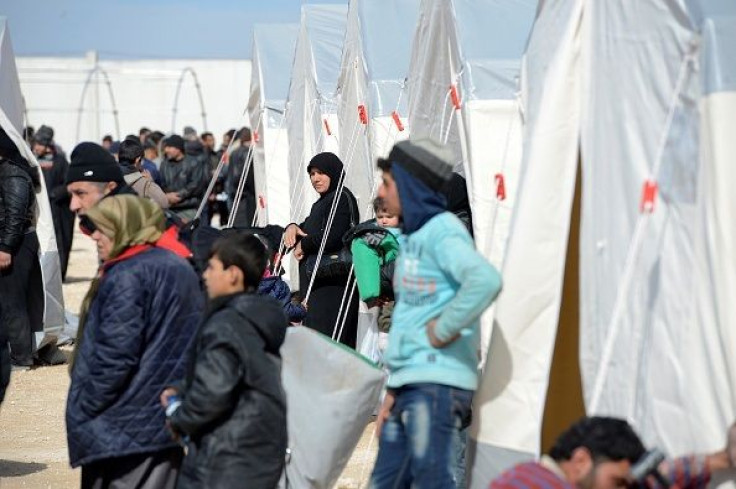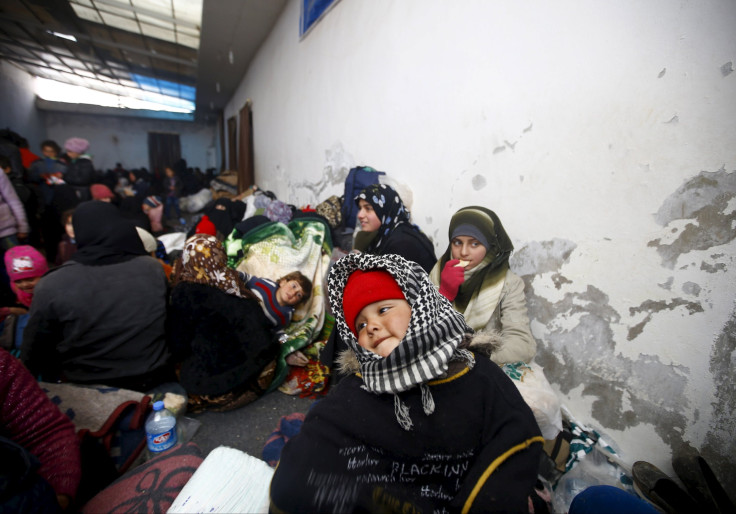Assad Regime Publicly Vows To Take Aleppo From Rebels As Russia Continues Air Strikes, Kills Hundreds

The regime of Syrian President Bashar Assad said it will capture Aleppo from opposition rebels, according to a Reuters interview with Bouthaina Shaaban, a top adviser to Assad. Shaaban said the regime, backed by Iranian ground troops and Russian airstrikes, was trying to "liberate cities and villages that were controlled by the terrorists".
Shabaan's interview, the first the regime has given to a Western news outlet this year, comes as during a massive operation by the Assad regime in Aleppo, where Russian planes are dropping bombs on the city center and the northern suburbs. So far, 500 people have been killed in the air campaign, according to Agence France-Presse. The Syrian Observatory for Human Rights said 506 people had died since the regime launched a major offensive against rebels on Feb. 1.
"We hope that the operation will continue in the north until we control the borders and stop the terrorists who Turkey has since the start of the crisis worked to send to Syria," Shabaan said in the interview with Reuters.
The United Nations warned this week that as many as 300,000 people in eastern Aleppo could be cut off from humanitarian aid if government forces encircle the city. At the Bab al Salama border crossing north of Aleppo, thousands of mothers, fathers and children stand waiting for the Turkish officials to open the gates to release them from the Assad regime and Russian bombardments. Until now, Turkish authorities have prevented the Syrians from passing into Turkey. But tens of thousands of people are now stranded in a makeshift internally displaced persons camp without access to vital medical services.

The local medical system in northern Syria is close to collapse, Doctors Without Borders said in a press release Wednesday. Several hospitals and smaller health facilities in Azaz, a town just north of Aleppo city, were hit by airstrikes in the last two weeks. At least three hospitals were damaged.
The Syrian regime's Aleppo operation comes just one week after United Nations-brokered peace talks in Geneva fell apart. The talks were supposed to bring together political factions in Syria to discuss a solution to end the five-year conflict but broke down after opposition parties walked out.
For months, the U.S., led by Secretary of State John Kerry, has tried to bring involved parties to the negotiating table to agree on a framework that would de-escalate the violence and end the civil war through diplomatic means. So far, however, the conflict — especially in the northern part of the country — has only grown more entrenched. The only public response the U.S. has given came from the State Department and Pentagon officials in press briefings. In Monday’s presser, State Department spokesperson John Kirby said: “We continue to monitor the situation in Aleppo closely,” adding that Kerry had spoken to Russian Foreign Minister Sergey Lavrov about the bombings and conveyed to his counterpart that the U.S. condemned the killing of innocent civilians.
The Syrian regime does not think diplomatic efforts will end the war.
"The states that support terrorism in Syria, behind the financing and weapons, did not take a decision to halt this financing and arming, and therefore we do not see success for the diplomatic efforts," Shaaban said.
Kerry is set to meet Foreign Minister Sergey Lavrov in Munich Thursday about delivering humanitarian aid to besieged areas and renewing suspended peace talks in Geneva, according to a statement released by the Russian Foreign Ministry.
"As difficult as the past two weeks have been ... and the uptick in fighting on the ground [in Syria], we are still hopeful that the process we have in place will work," said Mark Toner, a State Department spokesperson in a press briefing Wednesday. "No one is ready to throw in the towel. I am not saying it doesn't have its challenges."
© Copyright IBTimes 2024. All rights reserved.











